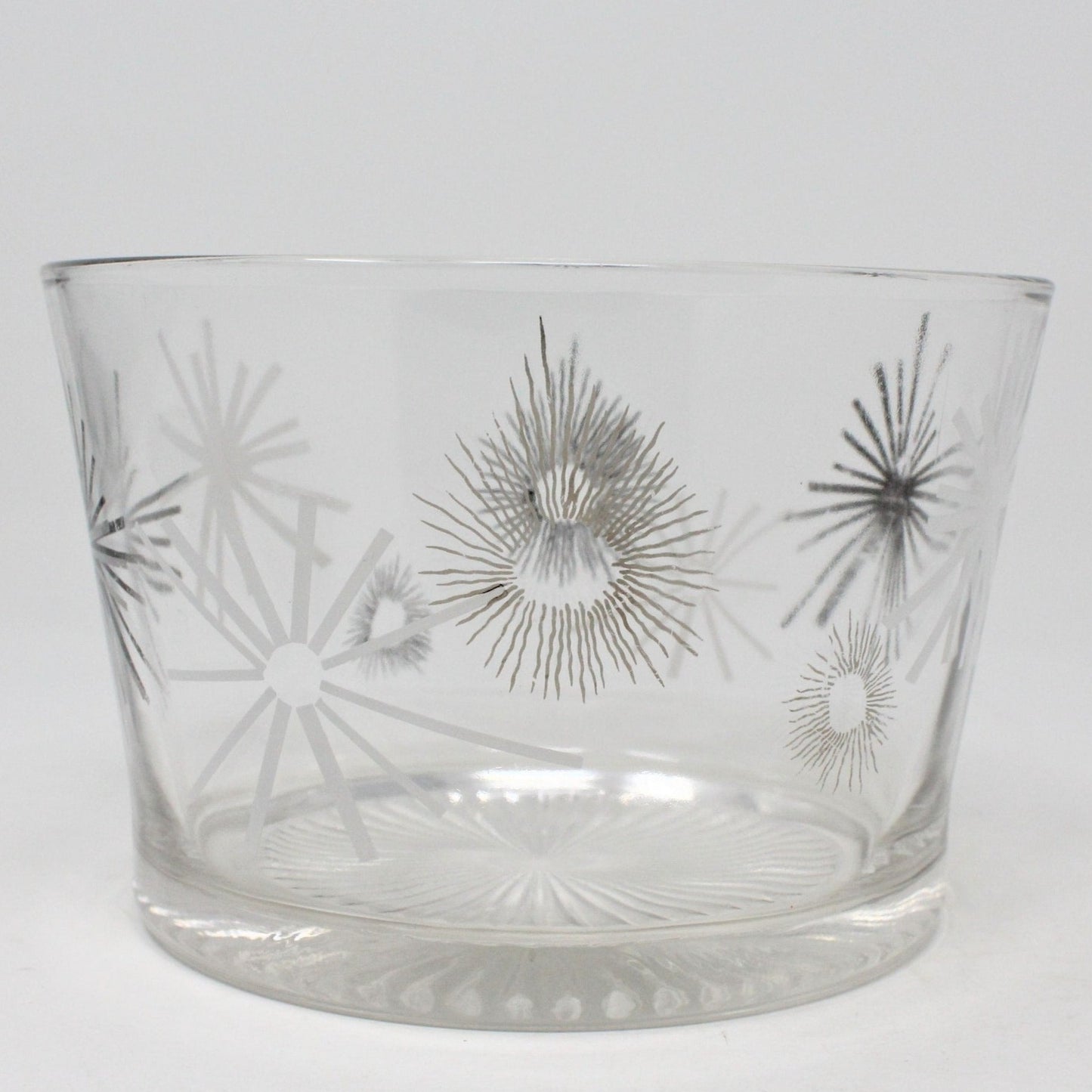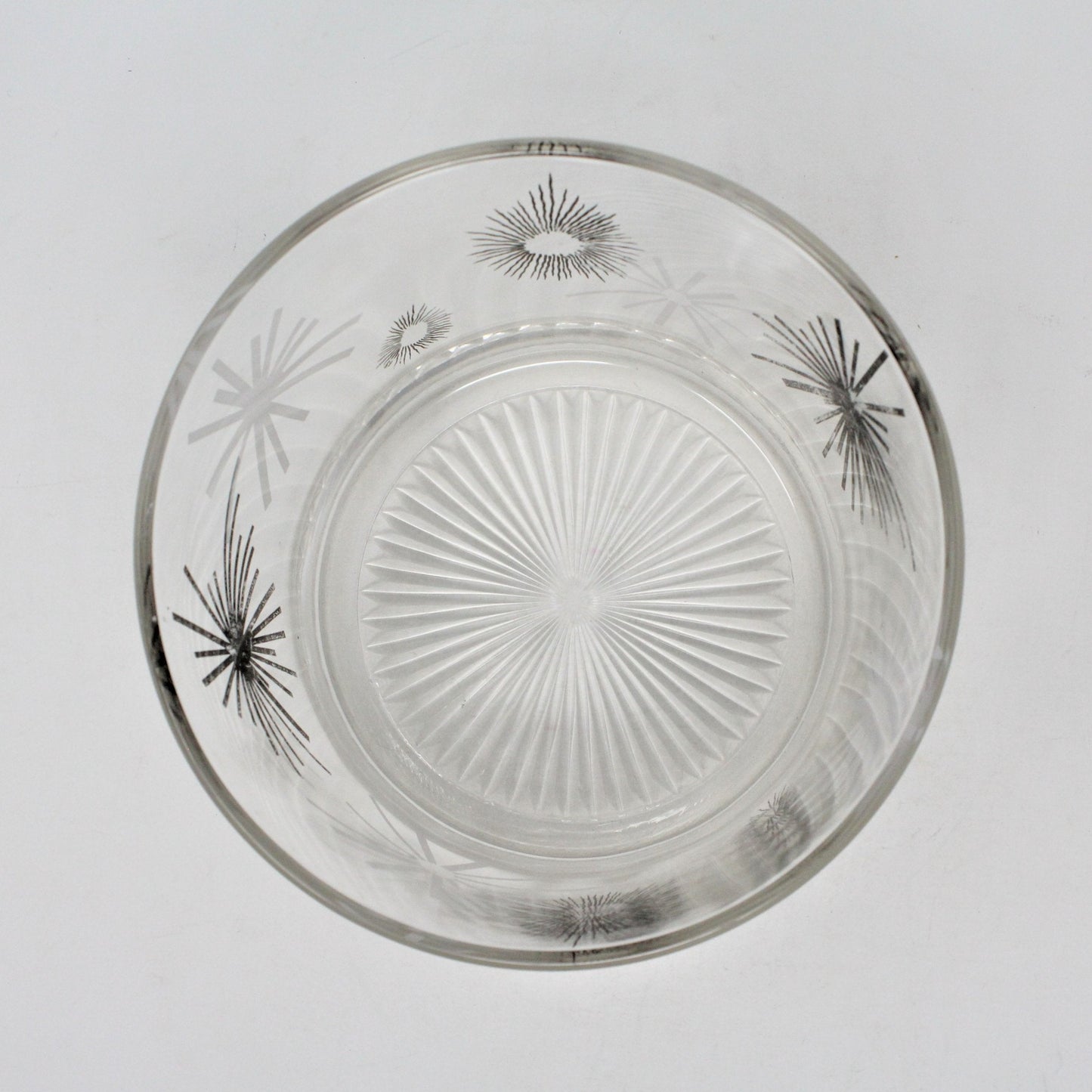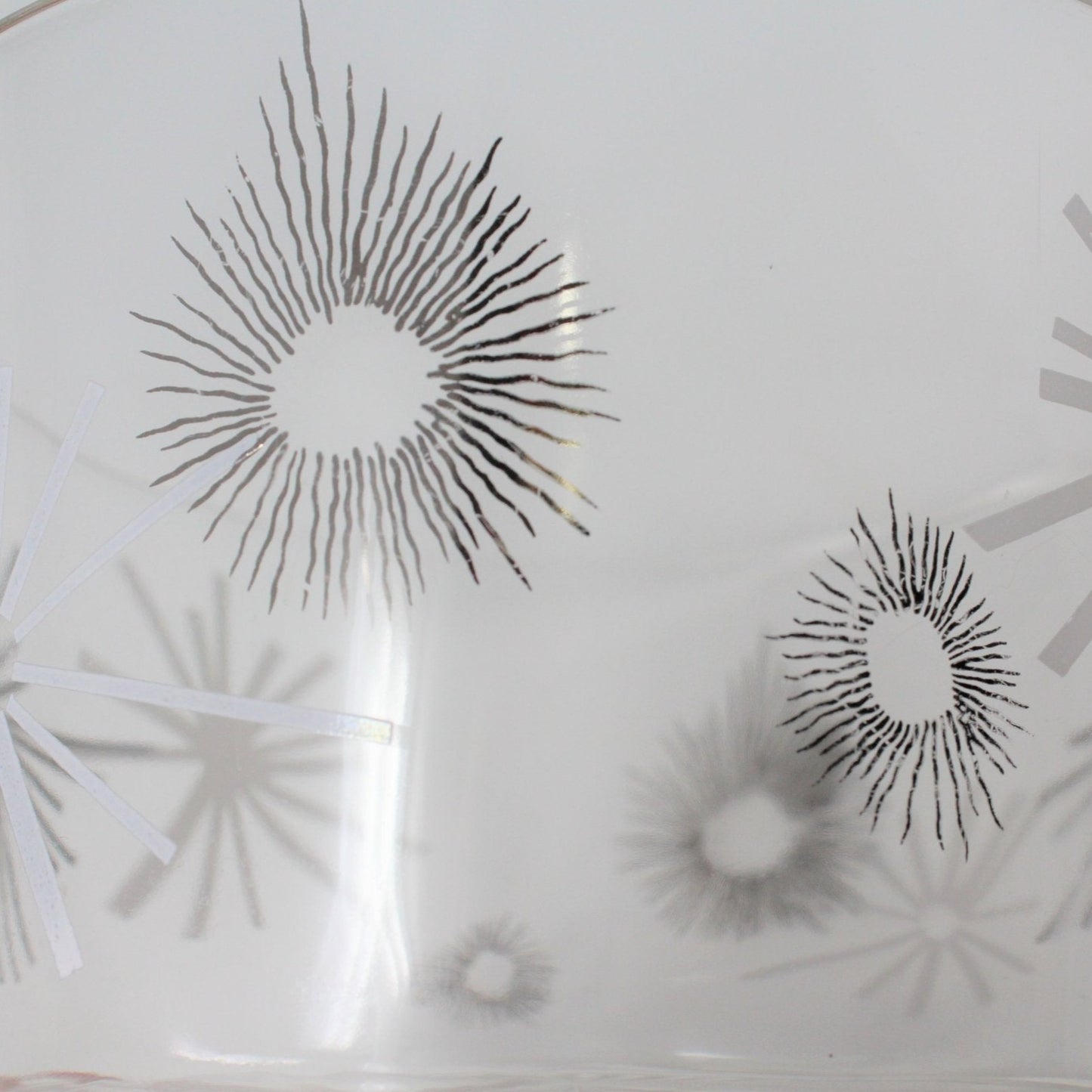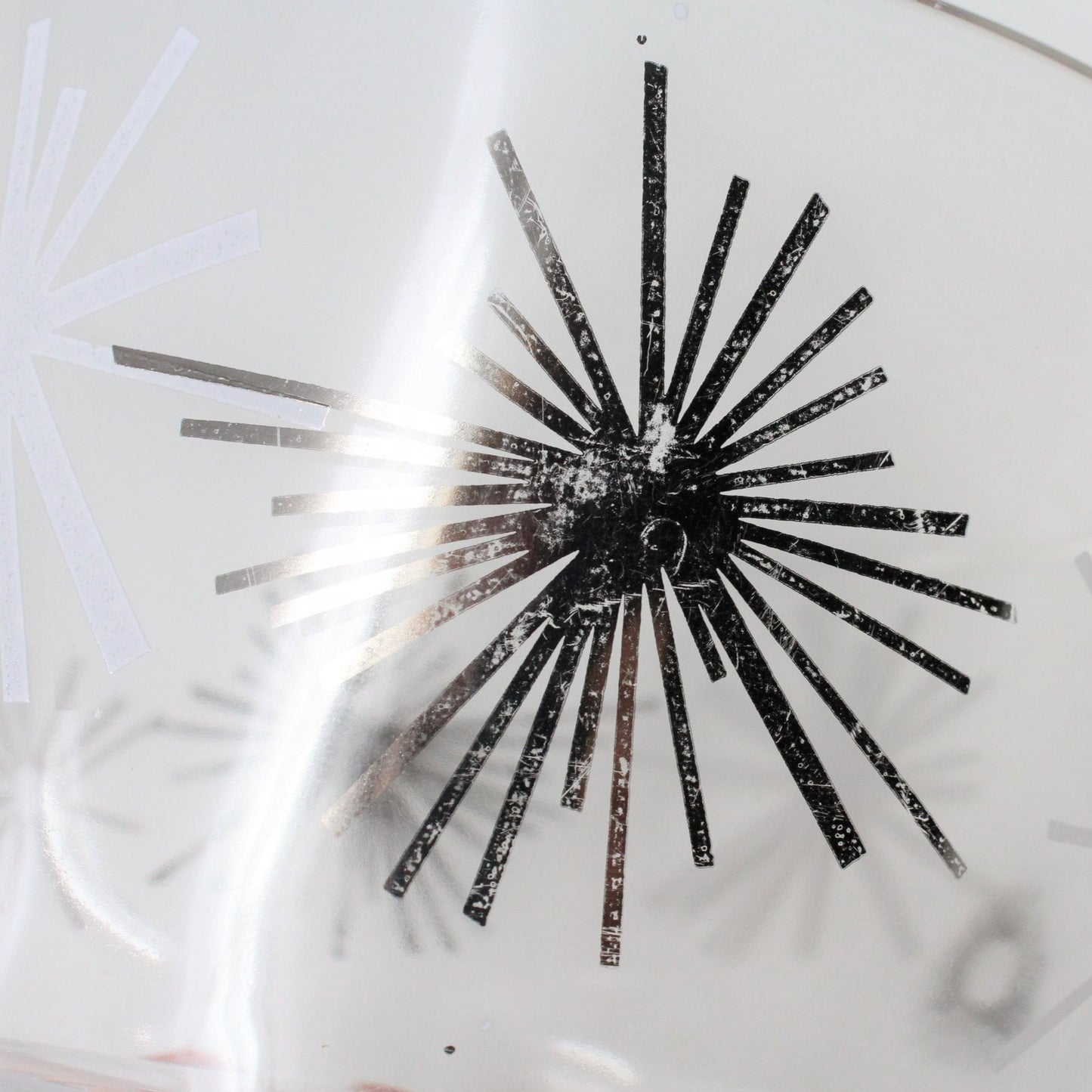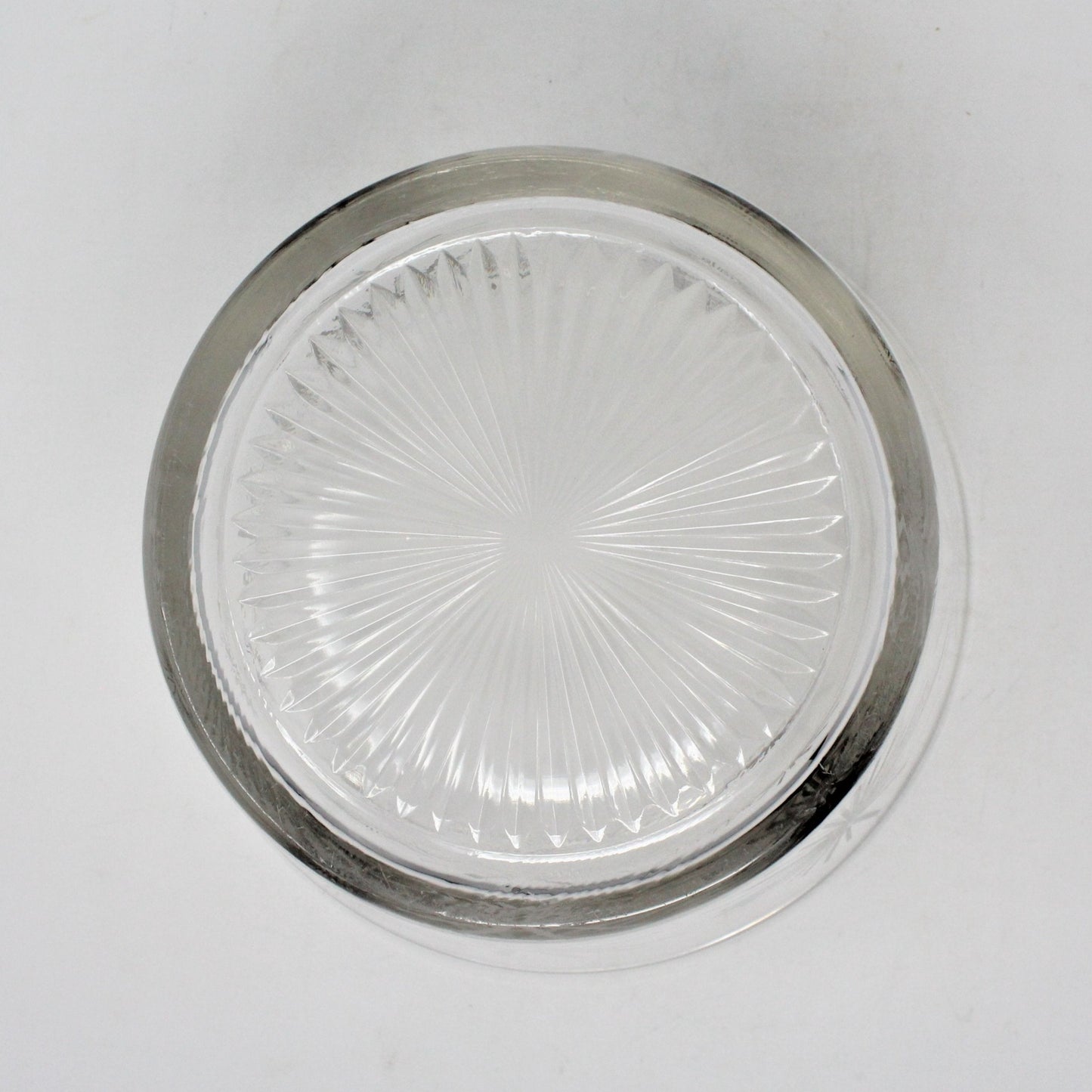Bartlett Collins
Ice Bowl, Bartlett Collins, Russel Wright. Asterisk, MCM, Vintage
Ice Bowl, Bartlett Collins, Russel Wright. Asterisk, MCM, Vintage
Couldn't load pickup availability
- Pattern: Vintage Ice Bowl / Ice Bucket, Russel Wright Mid Century Barware, Atomic Starburst, Asterisk Pattern (White / Silver), Vintage Collectible, (Discontinued)
- Made in Sapulpa, OK, USA
- Vintage: 1957
- Details: This a true Mid Century Modern ice bowl/bucket, extremely rare and hard to find in the much desired Asterisk pattern (some call it Atomic Starburst), by Bartlett Collins. It is a very retro looking pattern and because it is an open ice bowl, it can also be used as decor or as a serving bowl, even as a candy dish. This pattern was part of the "Oklahoma Line" designed by Russel Wright for Bartlett Collins. See below for extensive information on both the designer and glass maker. These ice bowls sell for over $100. Great addition to any MCM decor, perfect for the bar.
- Material: Glass
- Dimensions: 4.25 inches Tall, 6.5 inches in Diameter (top opening).
- Condition: Vintage - Used. Very Good Vintage Condition. There is wear on the large silver "starbursts", acceptable due to age/use/wear. There is also wear and surface scratches on the bottom rim due to use. Please review all pictures and make sure you love this item before purchasing, we can't accept returns. All Sales Final. Please remember these are VINTAGE and ANTIQUE items, they are NOT new, every effort has been made to show any scratches, wear and tear and imperfections.
Bartlett-Collins was started in 1914 in Oklahoma when H.U. Bartlett, an Oklahoma oil man, teamed up with George F. Collins, an East Coast glass man (owner of Premium Glass Co), and formed Bartlett-Collins Glass Co. The company was well known for its hand-pressed and blown tableware, stemware, and kitchenware and kitchen lamps. In 1918, Bartlett and Collins had a falling out and Collins took over one of the plants which became Liberty Glass Co. Liberty Glass, meanwhile, concentrated on milk bottles. Even that soon changed with the addition of soda bottles. After years of continual shifting, both firms finally settled into long-term production patterns. Although Collins had left, the name 'Collins' was kept because his son, J.W. Collins, remained the vice president. In 1929, the word 'Glass' was dropped from the name and the firm became Bartlett-Collins Co. By the 1930's Bartlett-Collins was making the stemware, all by hand, in different colors like: pink, green and amber. However, by 1941, due to the high costs, all hand made glass production had ceased. In 1982, the Lancaster Colony Corp. acquired Bartlett-Collins but kept the plant name. Lancaster Colony was the parent company of Indiana Glass. Bartlett-Collins made mold blown glass items for Indiana Glass and Tiara Exclusives. Bartlett-Collins continued to operate in Sapulpa until 2008 when Anchor Hocking Co. purchased the property and closed down the plant. There were many popular products made in the Sapulpa plant and are highly collectible today including: cookie jars, drinkware, stemware, serving dishes, kerosene lamps, and decorative pieces such as bowls and vases.
Russel Wright was born on April 3, 1904 in Lebanon, OH. He was an American Industrial designer. He had a best-selling ceramic dinnerware line which is credited with encouraging the general public to enjoy creative modern design at the table. Wright formed many professional relationships with glassware and other manufacturers. In 1941 he began a relationship with Imperial Glass, which produced the seeded glass Flair and later, in 1949 the Flame line was added, which was later called Twist. In 1957 Wright was commissioned to decorate the Oklahoma line of Bartlett-Collins. He only allowed two designs to use his name in advertising: Eclipse and Asterisk, though other styles were later produced in the tapered Oklahoma shape, as well as in a straight shape. He also designed many other items like: glassware, furniture, accessories and textiles, he largely transformed the atmosphere of the mid-century American home. Russel Wright died in New York on December 21, 1976.
Share

